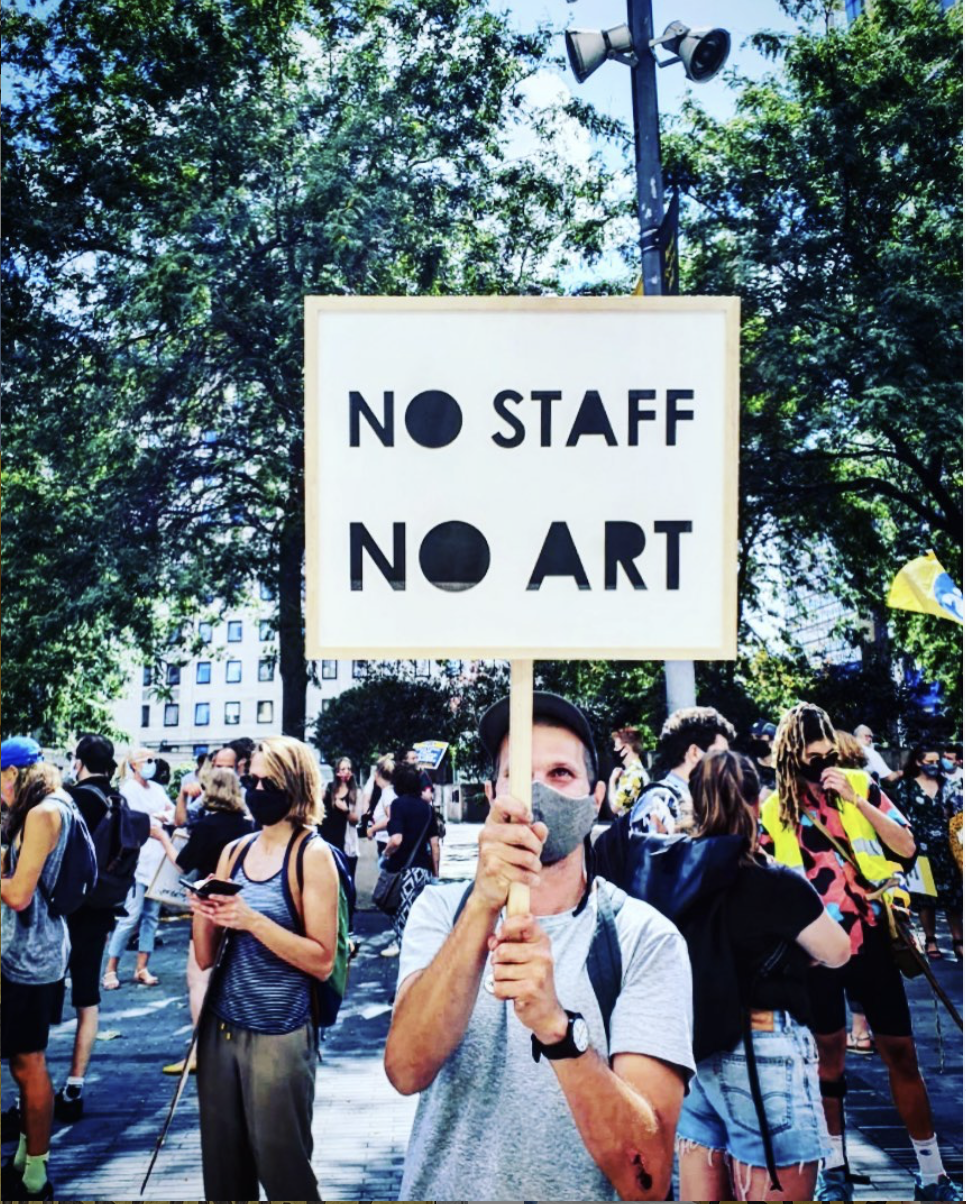Amidst staff pickets and protests, the Southbank Centre has issued a rebuttal. Last weekend employees gathered outside the London arts centre decrying the loss of up to 391 jobs which they claim is due to mismanagement.
In an open letter titled #SouthbankSOS, protesters wrote: ‘We believe that the board’s focus on finances rather than artistic programme is not merely a circumstantial response to the coronavirus crisis, but the culmination of an approach that has left the organisation bereft of creative vision and leadership at the very top […] The business mentality at the most senior level has not utilised the creative leadership and skills of the Artistic Heads. It has instead proven itself incapable of achieving anything other than managed decline.’

The institution’s management has now responded to the allegations in the letter, noting that much of their problems stem from the COVID-19 pandemic lockdown. ‘We will have lost £25m in income in the current financial year. Without action to manage this situation by reducing our costs and developing a new operating model, there will be no future for the Centre,’ their statement says.
It goes on to note however that this is partly because the centre has been forced to invest heavily in commercial income, mostly acquired through its portfolio of retail and restaurant sites, to pay off loans accrued in the maintenance of the 4.5 hectare complex of listed buildings, all of which were in need of recent refurbishment. Management says that there was no government funding available for these capital costs.
The statement to the press also seeks to clarify one of the most eye-catching claims of protesters: their open letter alleged that once the arts institution does reopen, just 10 percent of the venue will be allocated to its own programme of arts events. While 90 percent will be devoted to private hire, the Southbank Centre says that the vast majority of this will be artistic activities ‘provided, as before, by our residents, artistic partners and promoters’ and only a small percentage will be used for more corporate hires such as graduation ceremonies and private parties. ‘The reason for doing this is that we can reduce our own financial risk by promoting fewer of our own events.’
The statement from the Centre also addressed the question of senior management pay: ‘Since the start of closure, the senior leadership team has taken a minimum pay cut of 20% and in some cases have volunteered more.’ However in 2018-2019, Southbank Centre’s Chief Executive Officer, Elaine Bedell, received a pay rise from £194,377 to £240,750, an increase of almost 24% – the protesters’ open letter notes that this means she is still earning more than she did in 2018. By comparison, the pay of Tate’s director, the art centre’s riverside neighbour, was £185,625 in the financial year 2018-2019.